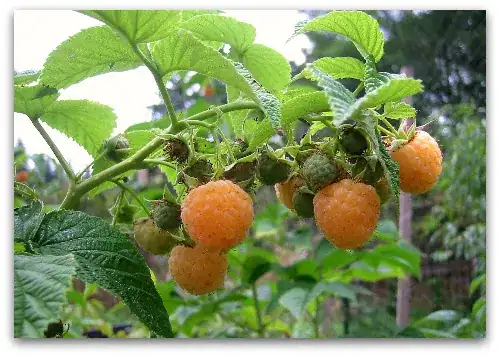First year canes grow.
Second year canes develop side shoots with flower buds.
Third year canes may develop side shoots in a lot less quantity (diminished crop), but in domesticated Raspberries usually die. Removal is the best policy.
Unless you're dealing with wild black cap Rasberries, this is the standard growth cycle.
You can propagate by letting the canes bend over in a U till the tip touches the ground in the second year. They react by creating a "dragon head" which roots and clones the plant. The new growth from this follows the same routine, but may allow for new growth off the attached cane to produce berries.
Domesticated Raspberries are prone to various fungal diseases and depending on the cultivar also do not tolerate Anthracnose virus. Dispose of the trimmings, you don't want either to be serving as mulch for your new canes.
